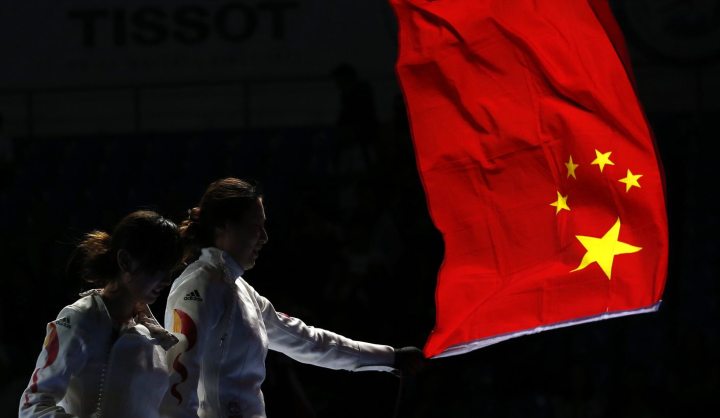World
The rise and decline and rise of China: Searching for an organising philosophy

The impact of the current turbulence in the Chinese stock market may well have a lasting impact on China’s politics, economy and social order, writes HESTER DU PLESSIS. But to understand any society beyond transient events, it is the long view that is required.
Within an ever changing geopolitical landscape where we see inter alia the rise of religious intolerance and sharp adjustments in economic eminence, the rise of China as a global force needs to be appreciated.
It is with this in mind that the Mapungubwe Institute for Strategic Reflection (Mistra) undertook a study on the ‘Rise, decline and rise of China: searching for an organising philosophy’. Preceded by a study on the rise and decline of the Mapungubwe society, this is part of Mistra’s focus on the evolution of civilisations.
The main objective was to understand the complexities of the Chinese past in order to contextualise the economic and socio-political aspects of Africa and China in their interaction with each other.
At the beginning of the 21st century China had arrived on the world stage as a major global force. With its 1.3 billion inhabitants, an economy that is fast approaching that of the US in size, a stock of nuclear weapons, a standing army of 2.2 million troops and a permanent seat in the United Nations Security Council, China is now undeniably a major global player. Its ‘socialist market economy’ has grown tenfold in three decades while its economy is buoyed by cheap labour, cheap capital and high productivity.
A special area of focus was on the way Confucian philosophy has influenced this great civilisation. Over the past few decades, it has become noticeable how often Confucianism has crossed the Chinese border to become a well-travelled philosophy. The growing number of Confucian Institutes that are established across the world demonstrates this – at the last count the US alone is host to 71 Confucian Institutions.
The Mistra report indicates that Confucianism played a major role in the development of China. Confucian China developed an ordered society based on a philosophy without an institutionalised religion. Not only does this demonstrate a break in the trajectory of the parochial European ‘enlightenment’ notion of scientific rationality (that was mostly underpinned by religious fervour), but China managed to successfully organise and modernise a huge nation-state during various periods of its evolution.
Understanding how China managed and is managing this process could provide us with the means to look at current world developments in a different way. One of the critical issues is the experience of colonialism and neo-liberalism in contradistinction to values such as sympathy, distributive justice, duty consciousness, public-spiritedness and group orientation – values that have characterised China’s organising philosophy even before the rise of the Communist Party in the late 1940s. We need to look critically at the current global mind-set of ‘conquer and rule’ which can be contrasted against China’s historical ‘culture of non-expansionism’, ‘soft diplomacy’, ‘keeping a low profile’ and ‘harmony’.
Of course there are many questions that arise during this kind of reflection. Among these are issues to do with what some may refer to as Confucianism’s promotion of a hierarchy of subservience all the way from the family to the national leadership. Related to this are also matters of gender relations and human rights.
Yet what cannot be gainsaid is that, from the ‘invention’ of the merit-based system of building a bureaucracy thousands of years ago, to the exploration of the world that was aimed at building relations rather than conquest, China introduced new ways of doing things that are hardly acknowledged. Yet the Chinese global pre-eminence dissipated and the country suffered many humiliations from colonial incursions. In the past century, the cult of personality and the subservience attached to this resulted in major reversals in the quality of life.
Yet China was able to rise again. And beyond the ‘economic miracle’ of the past 30 years, China is today again on the global ascendancy; and is asserting its place in the world in a manner different from the conduct of imperial powers of the past three centuries.
With the recent announcement by China’s President Xi Jinping of a 21st century Maritime Silk Road, China’s ancient history of over two thousand years is being revived. In that history, the country reached its pinnacle in the 15th century, when the legendary explorer General Zheng led an armada of more than 300 ships and 27,000 sailors in voyages from China through Southeast and South Asia to the Persian Gulf and the African coast.
How will the erstwhile ‘great powers’ of the West and the East respond to these developments? Will the emergence of a vast Eurasian trade and commerce network be seen as a new and welcome addition to international relations or will it be viewed from narrow and selfish geopolitical perspectives (that have characterised the global politics and economics of old imperial powers)?
Besides these global issues, China faces the perennial challenge of ensuring its own internal stability, with a society of more than a billion people. President Hu Jintao in 2005 reminded the Chinese government to continue building a ‘harmonious society’. Prime Minister Wen Jiabao in 2007 explicitly mentions Confucian values as the important ingredient to ensure harmony between people and in support of democracy. All this now has to be pursued against the backdrop of slower (though still high) economic growth, changing the drivers of economic progress towards higher levels of domestic consumption, a bigger role for the market with its own disruptive tendencies, and a yearning by the emergent ‘middle class’ for wider liberal freedoms which is also spurred on by new communication technologies.
Attached to all this is the fact that China, like the rest of the world, is progressively witnessing social gaps in income and wealth, as well as between those able to access information, those capable of skilfully applying information and those capable of growing new intellectual knowledge. Whatever the riddles of all this, there is global consensus that China has contributed and is adding something new to the evolution of human society.
In interrogating the organising philosophy behind China’s rise, decline and revival, Mistra has tried to delve into the epistemology of Chinese ideas and ideals that endured for two thousand years and more. It also poses the question about the similarities and contrasts between these ideas and Africa’s own rich tapestry of values and mores.
To share the findings on this daunting but exciting research undertaking, Mistra will host a conference to release its book on this topic on the 28 July 2015 at the University of Pretoria’s Library. DM
Photo: Yujie Sun (L) of China reacts with her teammate after her team’s victory during the Women’s Epee Team competition for the World Fencing Championship in Moscow, Russia, 18 July 2015. EPA/SERGEI ILNITSKY



















 Become an Insider
Become an Insider